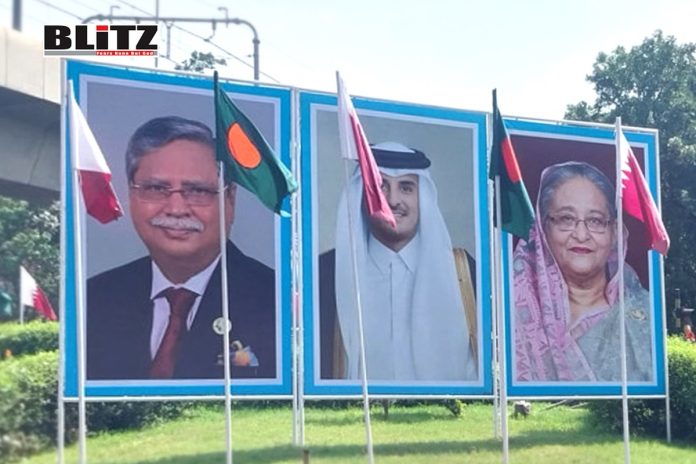In an era marked by globalization and interconnected economies, fostering strong bilateral relations has become paramount for nations seeking sustainable development and mutual prosperity. Bangladesh and Qatar, two friendly nations with shared interests and aspirations, have embarked on a journey of mutual investment and collaboration aimed at unlocking the full potential of their partnership.
Historical and cultural bonds
Bangladesh and Qatar share a rich history of cultural exchange and diplomatic cooperation that spans decades. The diplomatic relations between the two nations have been characterized by mutual respect, solidarity, and a shared commitment to promoting peace and prosperity. The historical ties, coupled with cultural affinities and people-to-people connections, form a solid foundation for deeper economic engagement and collaboration.
Economic potential
Both Bangladesh and Qatar boast vibrant economies with unique strengths and opportunities. Bangladesh, with its large population, rapidly growing middle class, and thriving garment and textile industry, offers a dynamic market for investment and trade. On the other hand, Qatar, endowed with abundant natural resources, strategic location, and a vision for economic diversification, presents attractive opportunities for foreign investors seeking access to the Gulf Cooperation Council (GCC) market.
Investment synergies
The mutual investment development efforts between Bangladesh and Qatar hold immense potential for synergy and mutual benefit. Qatar’s sovereign wealth fund, Qatar Investment Authority (QIA), has already shown interest in investing in Bangladesh’s infrastructure, energy, and hospitality sectors, leveraging the country’s strategic location and robust economic growth. Similarly, Bangladeshi companies are exploring opportunities to invest in Qatar’s construction, real estate, and information technology sectors, tapping into the nation’s infrastructure development projects and burgeoning digital economy.
Infrastructure development
One of the key areas of collaboration between Bangladesh and Qatar is infrastructure development. Qatar’s expertise in mega infrastructure projects, coupled with Bangladesh’s infrastructure needs and investment-friendly policies, creates opportunities for joint ventures and partnerships in areas such as transportation, energy, and urban development. Initiatives like the Bangladesh Economic Zones Authority (BEZA) offer attractive incentives for foreign investors, further incentivizing Qatari companies to participate in infrastructure projects and contribute to Bangladesh’s economic growth.
Energy cooperation
Energy cooperation is another promising avenue for collaboration between Bangladesh and Qatar. As a major exporter of liquefied natural gas (LNG), Qatar can support Bangladesh in meeting its growing energy demands and diversifying its energy sources. Agreements for LNG supply and investment in Bangladesh’s energy infrastructure, including LNG terminals and power plants, can strengthen energy security and contribute to sustainable development in both countries.
Human resource development
The exchange of human resources and knowledge-sharing initiatives play a crucial role in enhancing bilateral cooperation between Bangladesh and Qatar. Qatar’s investment in skills development and vocational training programs can contribute to capacity building in Bangladesh, particularly in sectors such as construction, healthcare, and hospitality. Similarly, Bangladeshi professionals working in Qatar’s labor market contribute to the country’s economy and gain valuable experience that can be leveraged for the benefit of Bangladesh upon their return.
Diversification of trade
Diversifying bilateral trade beyond traditional sectors presents an opportunity to enhance economic cooperation between Bangladesh and Qatar. While Bangladesh’s exports to Qatar primarily consist of garments, textiles, and pharmaceuticals, there is potential to expand trade in non-traditional sectors such as agriculture, IT services, and tourism. Facilitating trade promotion activities, establishing business networks, and reducing trade barriers can create a conducive environment for bilateral trade growth and mutual prosperity.
The mutual investment development efforts between Bangladesh and Qatar signify a strategic partnership aimed at leveraging each other’s strengths and unlocking new opportunities for economic growth and development. By capitalizing on synergies in infrastructure development, energy cooperation, human resource development, and trade diversification, both nations stand to benefit from enhanced bilateral ties and deeper economic integration. As Bangladesh and Qatar continue to collaborate on shared priorities and common goals, the friendship between the two nations will flourish, paving the way for a prosperous future built on mutual trust and cooperation.




